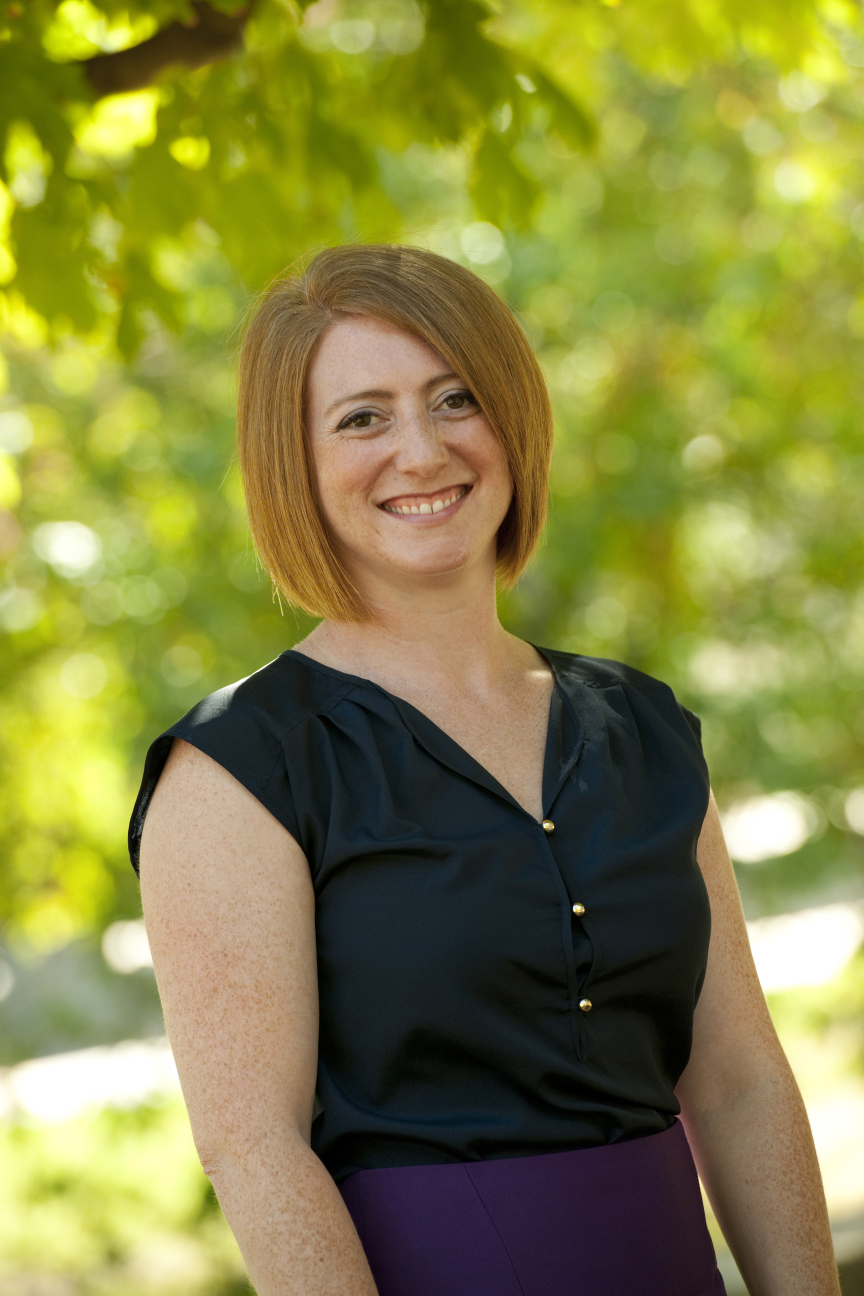Seeking a Cure for Crohn's Disease
A Rutgers Chancellor Scholar with Crohn's leads research to find a new treatment to protect against the disease

'If we can find a way to use this constant surveillance as a tool, we can prevent bacteria from crossing the barrier and activating an immune system that genetically doesn't know how to turn itself off.'– Karen Edelblum, RBHS Chancellor Scholar
When Karen Edelblum was diagnosed with Crohn’s disease at age 13, she had three questions for doctors.
Am I going to die?
Is there a cure?
Is this something that gets passed along in families?
No, not today, came the answers to the first two. Very likely, but we don’t know the cause, was the response to her third query.
It took months and a misdiagnosis of leukemia before doctors figured out she had Crohn's disease. She took the news hard but wondered if there might be a reason why she had Crohn’s. “I’ve always been more science-minded, so I thought maybe the reason is so I can work on finding a cure,” said the Chancellor Scholar at Rutgers New Jersey Medical School Center for Immunity and Inflammation (CII) and assistant professor of pathology and laboratory medicine.
Edelblum arrived at Rutgers this summer to pursue her research toward a cure, or, at least, a better treatment. A graduate of Emory University who earned her doctorate in cell and developmental biology at Vanderbilt University, Edelblum’s research has focused on the epithelium – the single layer of cells that lines the gastrointestinal tract and keeps the immune system from being activated by everything passing through the GI system – from graduate school through her postdoc stint at The University of Chicago.
Crohn’s disease and ulcerative colitis are chronic inflammatory conditions of the gastrointestinal tract known as inflammatory bowel disease (IBD). Crohn’s disease often affects the end of the small bowel, known as the ileum, and beginning of the colon, but it may affect any area of the GI tract. It is different from ulcerative colitis, which only affects the colon, or large intestine.
Symptoms are difficult, depleting and painful, and include persistent diarrhea, bleeding and abdominal cramps. Nearly 700,000 men and women are diagnosed with Crohn’s in the United States, and while it can affect all ages, it typically affects adolescents and young adults. With Crohn’s, the protective layer of the epithelium is compromised, sending the gut’s immune system into overdrive, causing a reoccurring cycle of inflammation and tissue damage.
“This is how I explain what it’s like,” Edelblum said. “If you’ve ever had food poisoning, imagine having it for weeks, months or years of your life, straight. Or the worst stomach flu you’ve ever had. That’s a good representation of Crohn’s disease.”
In Chicago, while studying how immune cells interact directly with the epithelial lining to keep the barrier from bacteria and toxins intact, Edelblum discovered that a subset of T cells, gamma delta T cells, which had appeared to stand in place like a stationary guard watching over the GI system, actually spring into action when a threat arises.
“What I found was instead of sitting as sentries they are on border patrol and able to contact the entire border acting to put out fires,” Edelblum said.
Studying video of the cells’ movement in mice infected with Salmonella, Edelblum and her team found that the gamma delta T cells can find the epithelial cells in contact with bacteria, home in on the cells and prevent the bacteria from crossing the barrier.
At Rutgers, she will lead a team to figure out how to make these T cells step up their patrol by identifying the signals that tell them where to go. “We need to figure out the cross-talk between the two,” she said. “Nobody’s looked at this so far.”
Deciphering the cell communication could lead to developing drugs to increase protection in the GI tract. “If we can find a way to use this constant surveillance as a tool, we can prevent bacteria from crossing the barrier and activating an immune system that genetically doesn’t know how to turn itself off,” Edelblum said.

Currently, there is no one-size-fits-all treatment for Crohn’s since the disease presents differently in each person affected and everyone reacts differently to prescribed medications, which are designed to suppress the immune system’s abnormal inflammatory response. Often, a combination of drugs is prescribed – anti-inflammatories, antibiotics, biologics, steroids, for example – and treatment can cause rough side effects. The aim is to stimulate remission, allowing intestinal tissues to heal and reducing chances for flare-ups.
Edelblum has been in remission since her early 20’s. After some typically defiant teenage years when she didn’t always follow her doctors’ orders, she had a major flare as her college years were ending.
“That’s often what happens with teenagers,” she said. “You have a crisis or a watershed moment when you realize you have to take care of yourself.”
As tuned into the emotional impact of Crohn’s as the scientific exploration to cure it, Edelblum has spent lots of time with teens with the disease through the Crohn’s and Colitis Foundation of America’s Camp Oasis in Georgia.
“My health stabilized in grad school, and I wanted to do something more directly,” she said. The camps, she said, provide a rare opportunity for kids with Crohn’s to meet and talk with other kids with Crohn’s. “It gives them a minute to feel like everybody else.” Plus, there are lots of poop jokes to share.
Her first teen campers are now adults, and they call her for advice, invite her to their baby showers.
“It’s such a powerful thing when you meet other people and you’re able to talk about it,” she said. “There’s all the empathy in the world, but unless you’ve walked a mile in someone’s shoes, it’s really difficult to know what it’s like.”
Media contact: Dory Devlin, dory.devlin@rutgers.edu, 973-972-7276